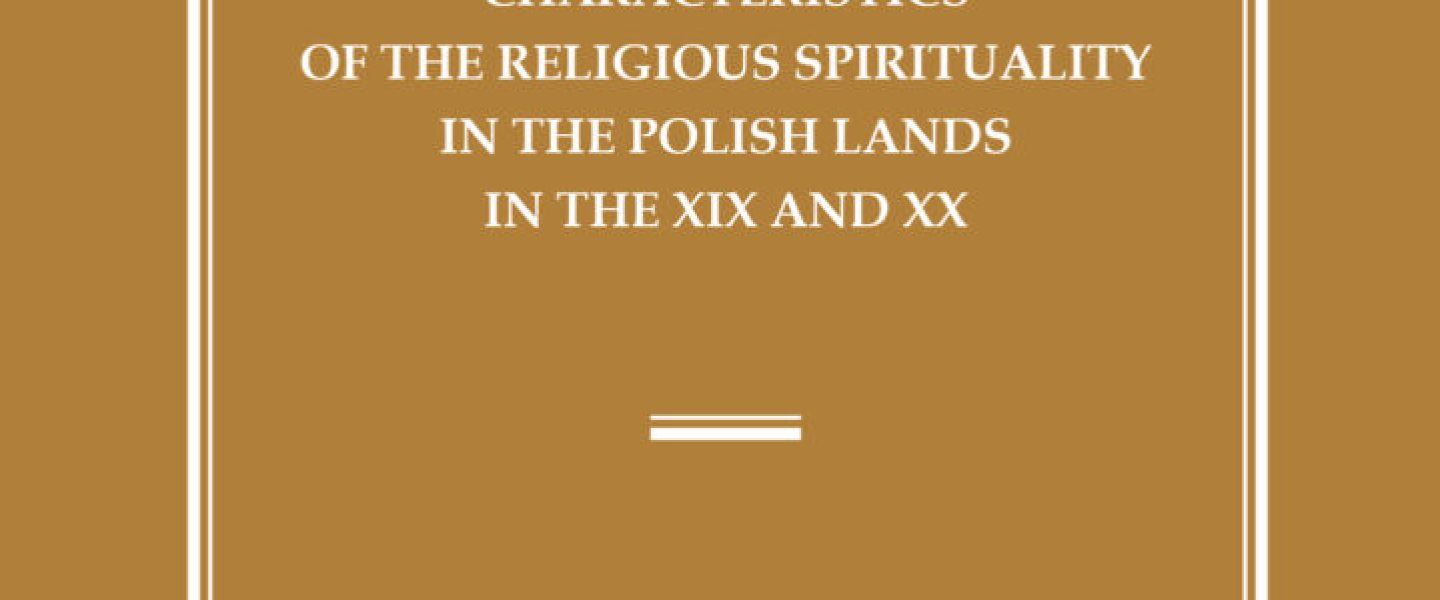

Powyższa publikacja posiada ściśle charakter naukowy, jest oryginalna i wnosi nową wiedzę w zakresie podejmowanego problemu. Nowatorska zawartość treści oparta jest na dokumentach źródłowych oraz na literaturze przedmiotu. Prawidłowo przeprowadzona analiza w omawianej publikacji zapewnia rzetelną wiedzę w zakresie podejmowanego zagadnienia. Ponadto w omawianym dziele właściwie zastosowano metodę analityczną. Pozwoliło to na dokonanie dogłębnej egzegezy spuścizny, jaką pozostawiły zgromadzenia zakonne na ziemiach polskich w XIX i XX wieku w zakresie omawianej tematyki. Podkreślić również należy logiczny, zgodny z zasadą asocjacji i kumulacji podział rozdziałów, które ukazują najważniejsze cechy duchowości zakonnej. Język publikacji jest klarowny i komunikatywny. dzięki czemu czyta się ją z dużym zainteresowaniem. Niezwykle bogaty materiał jest uporządkowany w sposób godny uznania. Przypisy oraz przywoływana w nich literatura nie budzą zastrzeżeń. Oznacza to, iż twórca dzieła prawidłowo korzystał z licznych źródeł. Krytycznie analizując zgromadzony materiał, wyciągał poprawne wnioski i prawidłowo zsyntetyzował osiągnięte wyniki badań. Warty podkreślenia jest również fakt, że książka pt.: Characteristics of the religious spirituality in the polish lands in the XIX and XX skierowana została do naukowego, polskiego środowiska polonijnego, które nie posługuje się już językiem swoich rodziców. In the pursuit of the renewal of Christianity, the Church is currently paying special attention to the internal formation of the faithful and wants through a vision of a spiritually mature man help them become new creatures according to God’s purpose. Over the centuries, this idea of Christian perfection has been presented by many masters of spiritual life, to whose writings we are currently reaching in search of role models. Polish masters of spiritual life at the turn of the XIX and XX century, such as Bogdan Jański, father Konstanty Łubieński, Archbishop Zygmunt Feliński, mother Florentyna Dymman, mother Marcelina Darowska or Zofia Kończa, had a direct or indirect influence on the formation of religious congregations in the Polish lands, both in the Austrian and Russian annexation. Being founders or co-founders of religious communities, they cared for the creation of new houses, both within the borders of the Commonwealth and outside them. In this way, they became the main theologians and spiritual masters of established congregations. While working on the formation of the internal life of their members, they also developed active pastoral activity. The students and followers of their works were sisters from these communities. This work was conducted to bring the founders’ spirituality and teachings to the members of the communities. By giving communities a spiritual face and clearly specifying the nature of their later activities, all the creators of new assemblies also had a clear impact on the development of Christian life in the Polish lands in the second half of the nineteenth century and in the first decade of the twentieth century…
PDF do pobrania: Characteristics
